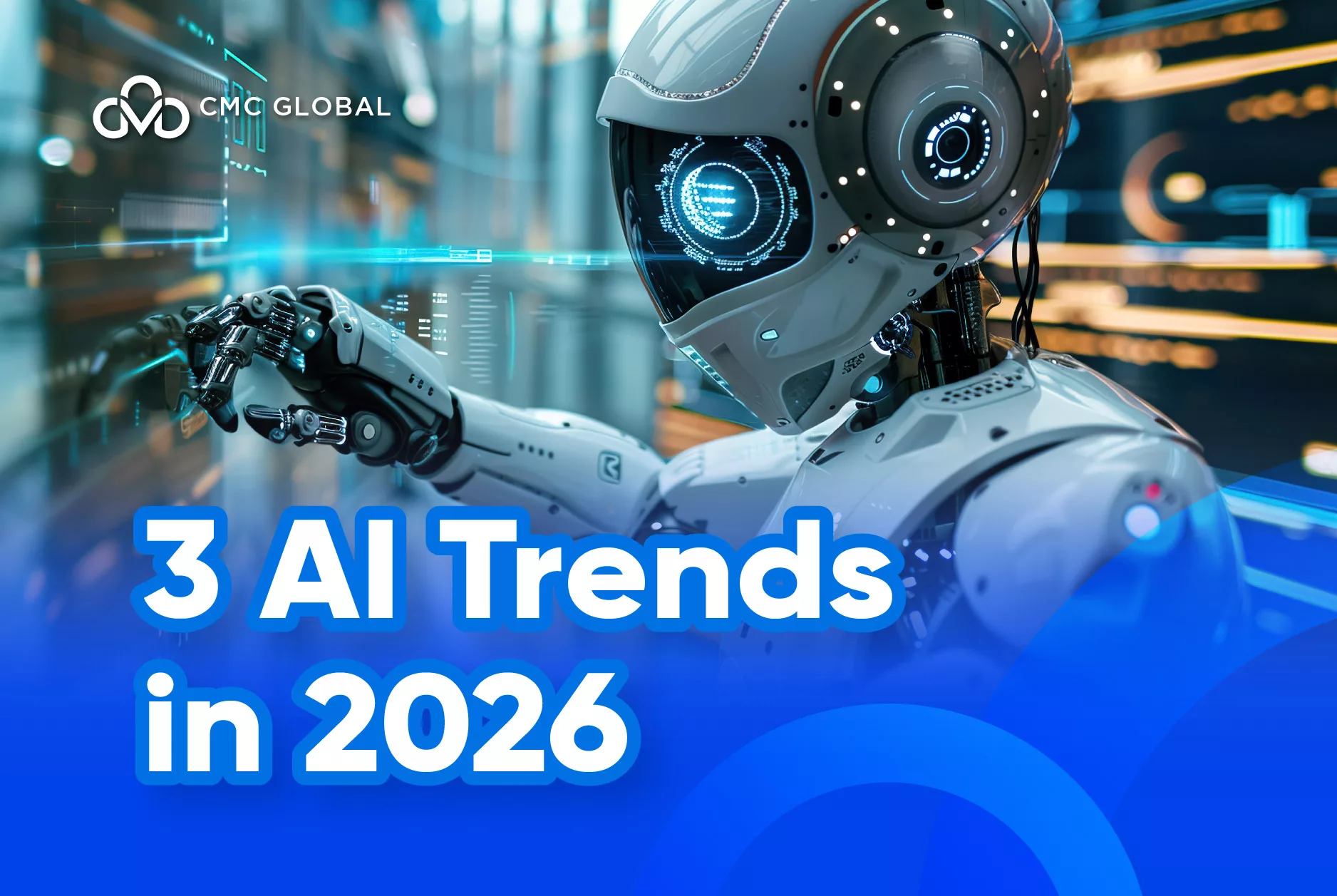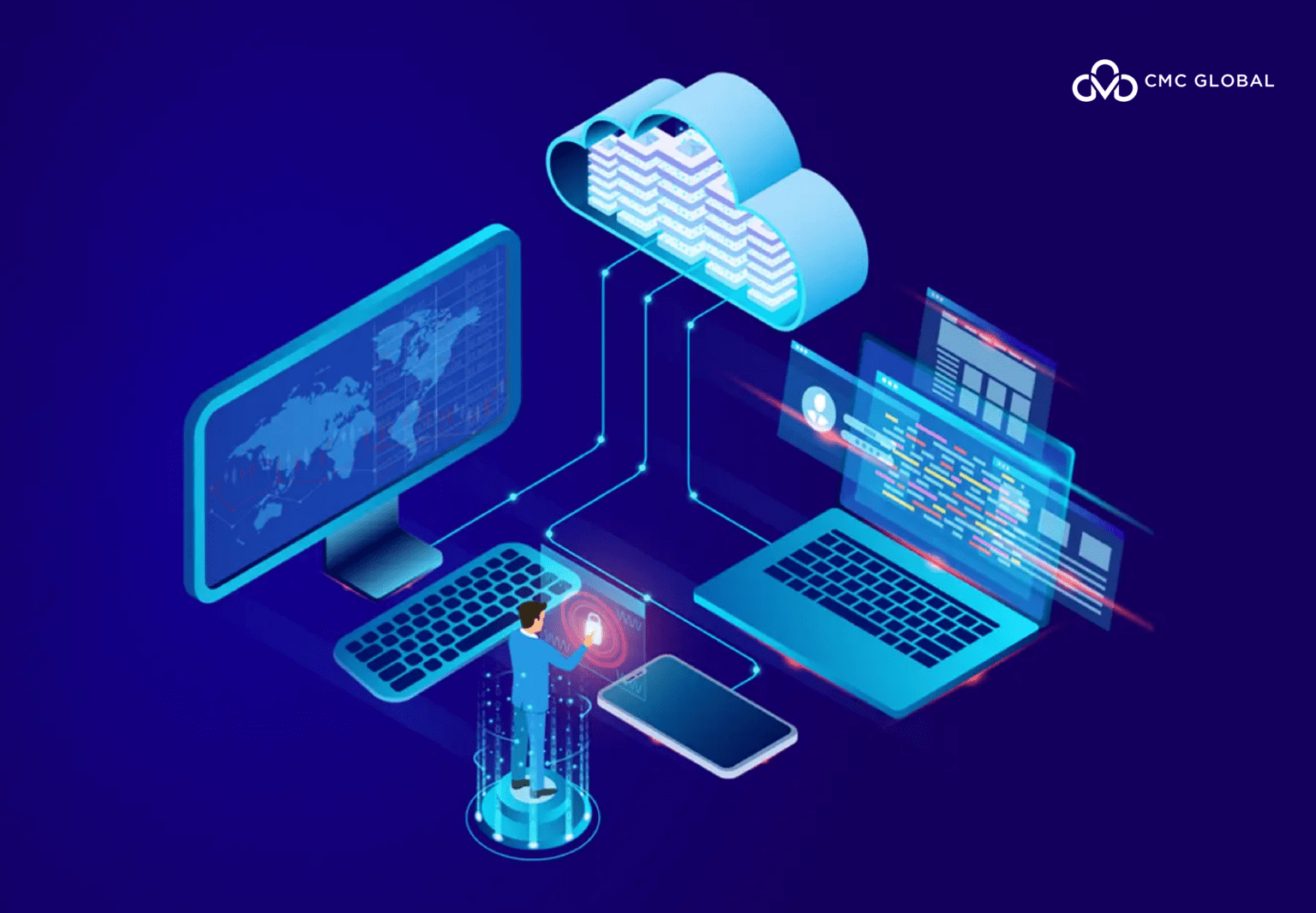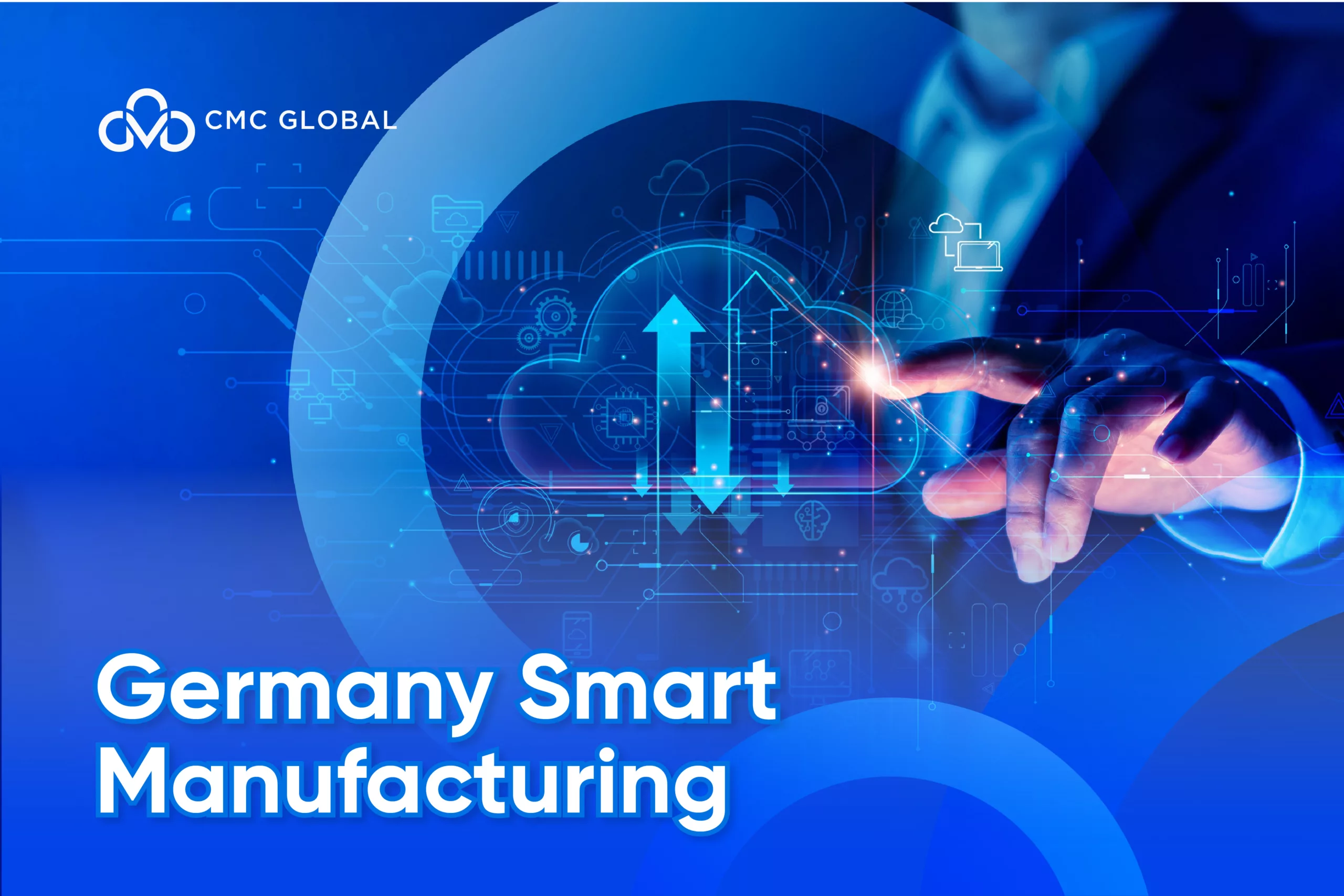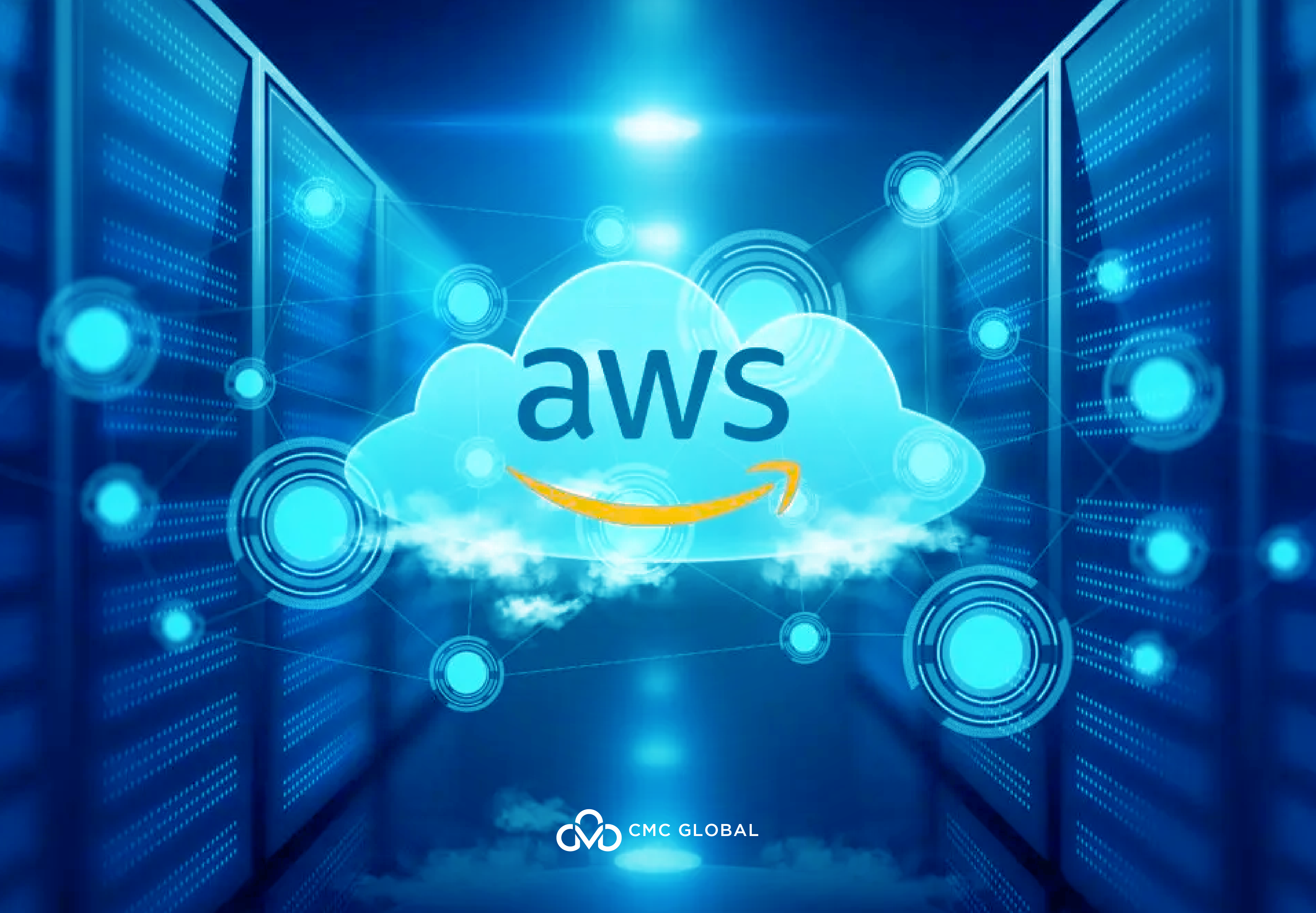From Precision to Intelligence: The New Edge
For decades, German industry thrived on precision engineering and efficiency. Today, however, progress is defined less by machinery and more by intelligent algorithms and data-driven decisions. Yet ambition alone isn’t enough—companies face skills shortages, steep costs, and the challenge of integrating AI into legacy systems.
The time for tentative AI experiments is over. By 2026, AI will be the differentiator between market leaders and the left-behind. Let’s cut through the hype and focus on the 3 AI trends that should be on your strategic roadmap, and how a modern approach to IT outsourcing is the key to harnessing them.
Trend 1: Hyper-Automation: From Isolated Tasks to Intelligent Ecosystems

Forget the simple bots of yesterday. Hyper-Automation is the next evolution, combining AI, machine learning, and process mining to automate not just repetitive tasks, but entire end-to-end business processes.
Imagine a system that doesn’t just process an invoice but automatically handles the entire procure-to-pay cycle: verifying the order, receiving the goods, matching the invoice, and executing the payment; all while flagging any discrepancies for human review.
Why German Businesses Can’t Ignore It
This is a game-changer for Germany’s core industries. In manufacturing and logistics, hyper-automation can manage entire supply chains, predicting disruptions and auto-adjusting production schedules. For the Mittelstand, it’s a lifeline to free highly skilled engineers from tedious administrative paperwork, allowing them to focus on what they do best: innovation and quality craftsmanship.
Already, 40.9% of German companies use AI in their business processes as of mid-2025, with another 18.9% planning to start. Hyper-automation isn’t a distant vision; it’s an accelerating reality that will define operational competitiveness in the next 18 months.
The Strategic Enabler: Outsourcing the Integration
Implementing hyper-automation requires a blend of process mapping experts and AI specialists – a team that is prohibitively expensive and nearly impossible to hire and retain locally. This is the first compelling case for a strategic IT partner.
A specialized outsourcing firm can provide a ready-made, cross-functional team to analyze your unique processes, build and train the automation agents, and integrate them seamlessly into your existing SAP or other enterprise systems. This isn’t about replacing your IT department; it’s about augmenting it with a strike force to achieve a faster return on investment without long-term overhead.
Trend 2: The Sovereign AI Imperative: Where Compliance Meets Competitive Edge

According to KPMG Study, while 66% of Germans already use artificial intelligence, only 32% are prepared to trust AI-generated information.
As the EU AI Act comes into full force, “AI Sovereignty” will move from a buzzword to a business-critical requirement. Sovereign AI refers to systems built and operated in compliance with strict European regulations like GDPR and the AI Act. It ensures that your valuable business and customer data is processed on secure, EU-based infrastructure, never leaving the legal jurisdiction.
Why German Businesses Can’t Ignore It
For German companies, compliance is non-negotiable. A data breach or regulatory misstep can destroy decades of hard-earned customer trust and result in massive fines. But beyond risk mitigation, Sovereign AI is a powerful brand differentiator. In a global market wary of data misuse, “Powered by ethically-aligned, EU-compliant AI” is a strong signal of quality, security, and respect.
The Strategic Enabler: Outsourcing with a Sovereignty Guarantee
Building a sovereign AI infrastructure from scratch demands deep expertise in both cutting-edge AI and intricate European data law. This is where partnering with IT outsourcing firms, particularly those with profound GDPR experience, becomes a strategic masterstroke.
Many now offer “Sovereign AI Guarantees,” providing you with top-tier AI talent while ensuring that data governance and regulatory compliance are the foundational pillars of your solution. It’s the most efficient way to build trust and ensure market access.
Trend 3: The Generative AI Shift: From Chatbots to Core Business Co-Pilots

Move beyond seeing tools like ChatGPT as mere novelties. By 2026, Generative AI will be deeply integrated into core business software, acting as an intelligent co-pilot for your workforce.
- Internally: It will draft technical documentation, summarize complex project reports for management, and even generate code for internal tools.
- Externally: It will power hyper-personalized marketing content for different regions and provide technical support that can understand and troubleshoot complex engineering problems from a customer’s description.
Why German Businesses Can’t Ignore It
This trend directly accelerates innovation and enhances customer intimacy. Imagine slashing R&D cycles by using generative design for new components or offering 24/7, deeply knowledgeable support that reflects the quality and expertise of your German engineering.
The Strategic Enabler: Outsourcing to De-Risk Innovation
Fine-tuning and safely integrating Generative AI into specific, high-value workflows is a highly specialized field. Hiring for this role is competitive and risky. An alternative? Engage an outsourced “AI Innovation Team” to pilot specific projects. They can develop a custom chatbot trained on your internal knowledge base or create a generative design tool for your engineers. This approach allows you to test, learn, and scale what works without making a permanent, and expensive, commitment to an unproven capability.
Your 2026 AI Strategy: Build, Partner, or Be Left Behind
The trajectory is clear. Hyper-Automation, Sovereign AI, and integrated Generative AI are not distant futures; they are the pillars of the 2026 competitive landscape. German businesses face a clear choice: attempt to build everything in-house at a glacial pace and exorbitant cost, ignore the shift and cede ground to more agile competitors, or adopt a strategic, hybrid approach.
Modern IT outsourcing is no longer just about cost reduction. For the forward-thinking German business, it is the agile, strategic partnership needed to access world-class skills, ensure regulatory compliance, and accelerate time-to-market. It is how you achieve Vorsprung in the artificial age.
Ready to turn these AI trends into your sustainable competitive advantage?
Let’s discuss how a strategic IT partnership can future-proof your business.
Contact us today for a free, no-obligation consultation.




